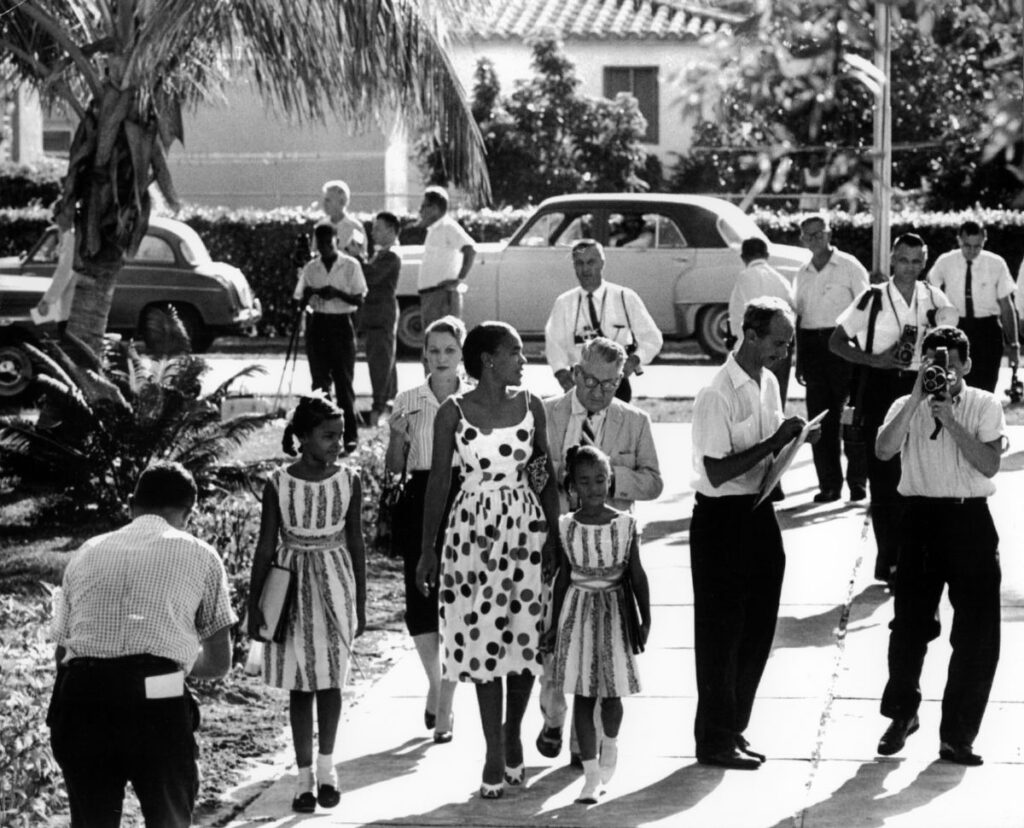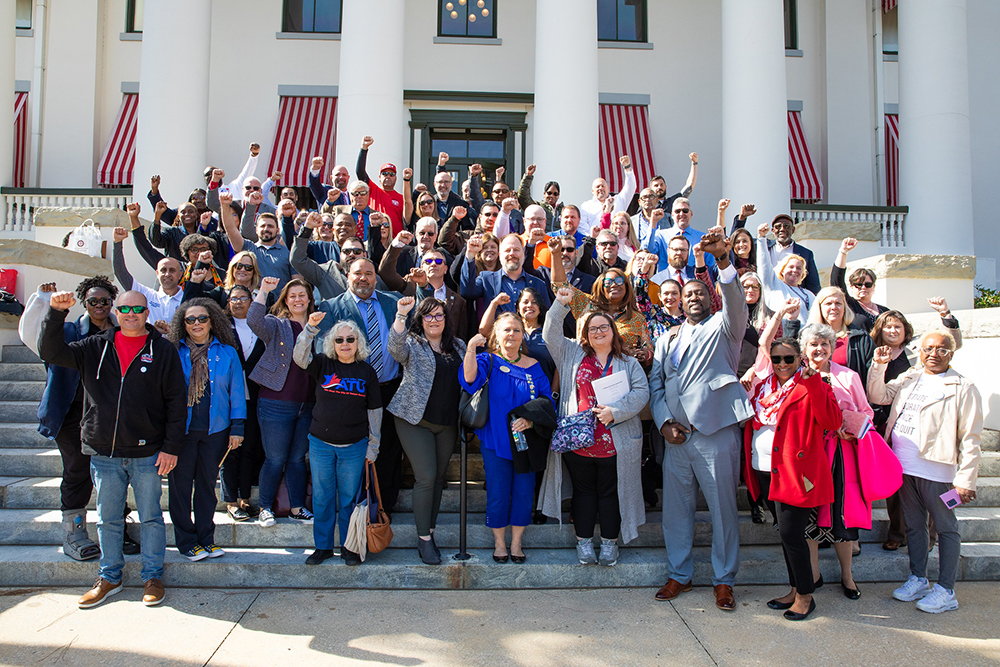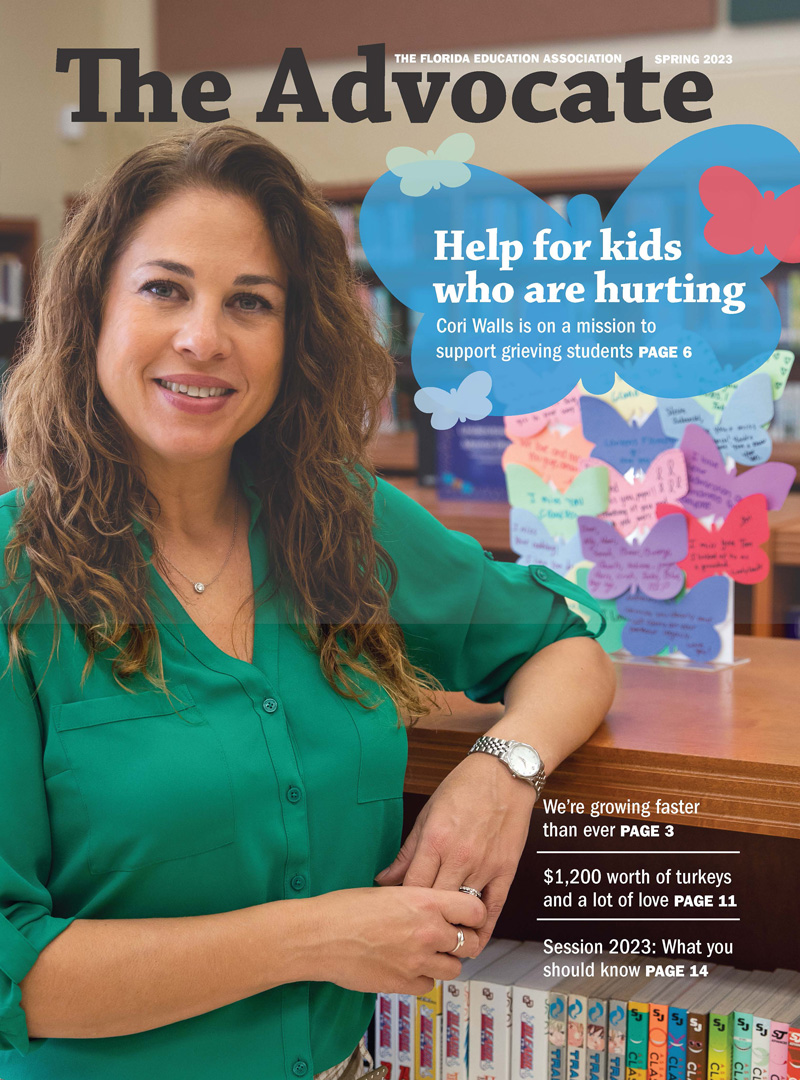Seventy years ago, the United States Supreme Court ended the legal practice of racial segregation in schools with its ruling in Brown v. Board of Education of Topeka.
It was 1954, and an era that saw massive change for the United States. Just a year after the ruling, Rosa Parks would help shape the Civil Rights movement in America and usher in more decisions and rulings that addressed inequality based on race.
In 1849, the Massachusetts Supreme Court ruled in Roberts v. The City of Boston that the separate schools in Boston were equal, despite testimonies sharing the unequal application of resources in separate schools. Like many things in America, the ruling of Brown v. Board didn’t happen overnight and came with plenty of hurdles. In Florda, it took nearly a decade after the ruling and a firm deadline to comply by the Supreme Court.
Archived video of the then State Superintendent of Schools and State Attorney General discussing their plan to give vouchers to white children so they can attend all–white private schools. (Source: State Archives of Florida, Florida Memory)
In 1896, the Supreme Court upheld a ruling in Plessy v. Ferguson that public schools and other public facilities could be legally segregated by races as long as accommodations were separate, but equal. But in reality, segregated public schools weren’t equal by any means and too often, racist policies and unequal funding forced African American students to learn in institutions and environments that severely lacked resources.
Due in part to the unending dedication, and sacrifice and commitment of activists, the NAACP and the ACLU, Brown v. Board proved “separate, but equal” was just another inadequate and unconstitutional means to perpetuate segregation.

(Source: State Archives of Florida, Florida Memory. Accessed 17 May 2024.)
Seventy years later, educators across the nation are focused on making sure every student- regardless of race or place- has access to an education that encourages them to learn, grow and find success. In Florida, providing a free, world-class education is enshrined in our constitution. And each day, Florida educators and education staff professionals are committed to that goal.
Today, the work to fulfill the promise made by Brown v. Board continues.
Schools with majority non-white students can still face systemic issues when it comes to the resources available to them. Fewer resources, limited course options, a higher likelihood of teacher shortages, and overall, less funding continue to challenge the learning and teaching experience in schools.
Florida has become more diverse over the last 70 years, but segregation in the modern day, has become more complicated. Systematic racism has created a cycle that widens the gap between different socio-economic levels and their access to resources. People in lower income communities can become stuck there, with many children in the same communities attending schools that aren’t provided with the same resources as those in higher socio-economic communities. These unequal learning environments disproportionately affect students of color and often, an unequal education can be lifelong.
These issues are only worsened when anti-education politicians move funds away from public schools and create policies that continue to impact the type of public education that is available for students.
In fact, in Florida’s current budget, for every $1 the state funds in public school teacher salary increases they are sending $13.84 dollars to private schools. In addition, these politicians, often backed by anti-education interest groups, push for politicizing classrooms by banning books or creating never ending hurdles to a teacher’s ability to simply teach. Many educators are choosing to leave the profession due to being vilified for simply doing their jobs. This trend is contributing to an increasing teacher shortage, which will have a detrimental impact on the education and success of Florida’s students.
The past 70 years have had their challenges and successes.
As educators, we are no strangers to problem-solving and advocating for our students. The decision to declare segregation in public schools as unconstitutional aligns with our mission as a teachers’ union to promote equity in education. Removing the “separate but equal” doctrine allowed for students at any public school to access the opportunities they need to learn. The ruling empowered teachers and currently empowers our members to create inclusive educational environments — despite the actions of anti-education politicians. We have and will always fight for our students. Brown v. Board shows the impact that our advocacy can have on improving educational policy.
As union members, we bear the responsibility to be the most prominent advocates for creating the educational experience that all Florida’s children have a right to participate in. Despite all the hurdles we have and will overcome, we must remember that we have the obligation to use our collective power to stand up for our students. Behind what we do every day as educators and unionists, we understand that we are doing this for our students and our future.

As lifelong learners and advocates, we call on everyone to continue to fight for the promises we made for our students in 1954. As USC law professor Derek W. Black shares, “It’s not that Brown failed; it’s that we failed to finish the job.”
Further Reading about Brown v. Board of education:
- NEA Podcast http://neatoday.org/school-me/
- STARS UCF Article https://stars.library.ucf.edu/cgi/viewcontent.cgi?article=4688&context=fhq




